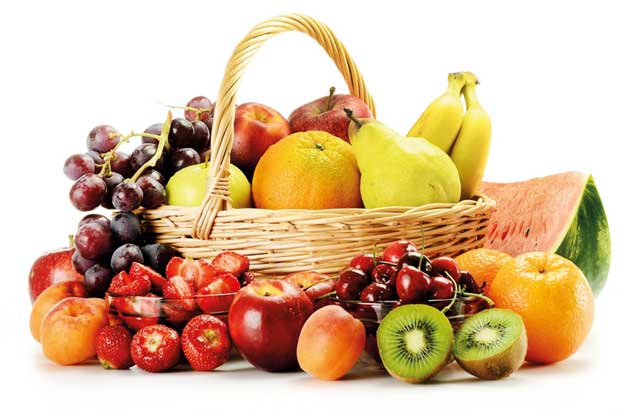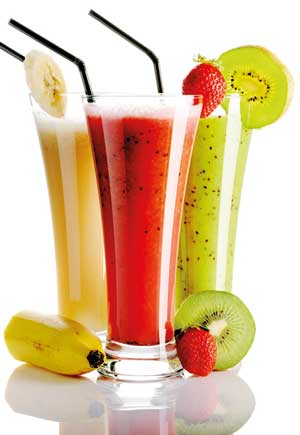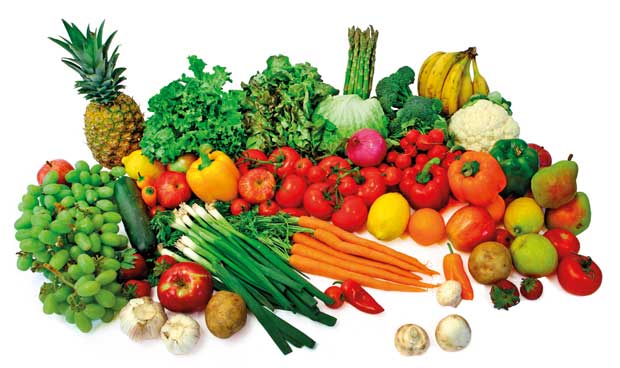07 Jun 2017 - {{hitsCtrl.values.hits}}

 It’s nothing new that fruits and vegetables should be an essential part of everyone’s diet. It is of utmost importance to have a regular intake of these as part of one’s diet. However, not everyone enjoys including fruits and vegetables in their meals. You may have your preferences and aversions. Some people may like to consume an entire fruit while others may prefer to juice it. Juicing is also considered a popular form of consumption, especially for little kids, when a disliked fruit is involved. The question that has been debated back and forth is whether both choices are nutritionally equal.
It’s nothing new that fruits and vegetables should be an essential part of everyone’s diet. It is of utmost importance to have a regular intake of these as part of one’s diet. However, not everyone enjoys including fruits and vegetables in their meals. You may have your preferences and aversions. Some people may like to consume an entire fruit while others may prefer to juice it. Juicing is also considered a popular form of consumption, especially for little kids, when a disliked fruit is involved. The question that has been debated back and forth is whether both choices are nutritionally equal.
Coming to the point, it is quite obvious that eating whole fruits and vegetables is nutritionally more beneficial than juicing them. Though fruit juices come off as tasty and refreshing, they are not as healthy as consuming the whole fruit due to various reasons. Though it is of common knowledge that consumption of fruits and veggies is better than juicing, the reasons as to why may remain in the dark. To bring this to light, we spoke to Dr. Shanthi Gunawardana, Consultant Community Physician, Ministry of Health.

When we consider a fruit, there are two nutritious parts-the fruit skin and fruit pulp. Fruit skins consist of nutrients which provide nourishment and maintenance of health. “The whole fruit comprises of skin, pulp and the fleshy parts which are all nutritious. Vitamin C, other minerals, carbohydrates and minute amounts of protein, chemicals such as flavanoids and carotenoids are some nutrients you find in fruits. They are important as anti-cancer agents and help in the prevention of cancers, a widely prevalent health plague in the world today. The skin of fruits contain other pigments which help protect from harmful UV rays. Thereby, fruits harness the ability to act as a protective agent from various harmful conditions.”

For example, the skins of grapes especially, are known for their cancer fighting ability and as protection against UV rays. The pulp of fruits contain fibres which also form an important part of a balanced diet. When fruits are pressed or squeezed to make juice, some of the nutrients, most notably fibres and water soluble vitamins, get dissolved and will be lost. Dr. Shanthi commented on this. “Fruits also contain fibres. When fruits are being juiced, fibres are lost in the process due to being crushed, squeezed and mixed. In the juicing of fruits, not all parts will be used and so the intake of fibre content along with other minerals and nutrients will be reduced. Therefore the ultimate result which is the juice would only have a small amount of fibre. Fibre proves very useful, especially when it comes to maintaining a healthy digestive system, regularizing bowel movements and helping prevent conditions such as constipation.” In the process of juice-making, a higher content of sugar in addition to the fructose in the natural fruit is also added to enhance taste, which is not very beneficial in terms of blood sugar and threatens the maintenance of a healthy blood glucose level in the body.
Juicing is not always about fruits. Some vegetables, for instance carrots, can be juiced. But when considering vegetables, juicing is actually beneficial to the health and is not always a bad thing. It helps absorb all the nutrients from the vegetables and more amounts of them can be had.
Gastronomically, the digestion of minerals and vitamins is facilitated. This also enables the addition of a wider variety of vegetables to the diet. Promotion of weight loss, boosting of the immune system and increments of energy are among the list of benefits obtained through juicing. Brain health is also supported positively in the juicing of vegetables. “It is advised to mix fruits and vegetables together when making juices. By providing supplementary vegetables, this makes up for the lost nutrients when fruits are juiced.”

Juice is occasionally fine because we need a sweet form of hydration every now and then and it indeed proves to be a refreshing beverage. However it is advised not to get carried away and to keep in mind that eating wholesome fruits and veggies are vital for proper growth and development of the body. “Better to eat fresh fruits and vegetables as much as possible but the occasional juice does not do much harm. Mixing juices with supplementary vegetables maximizes the health standards of the drink.”
11 Jan 2025 2 hours ago
11 Jan 2025 5 hours ago
11 Jan 2025 5 hours ago
11 Jan 2025 6 hours ago